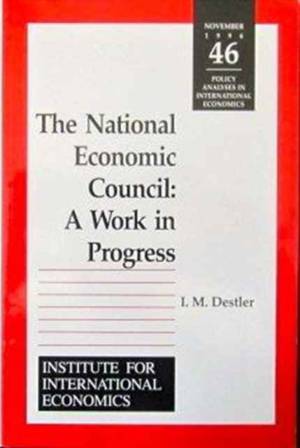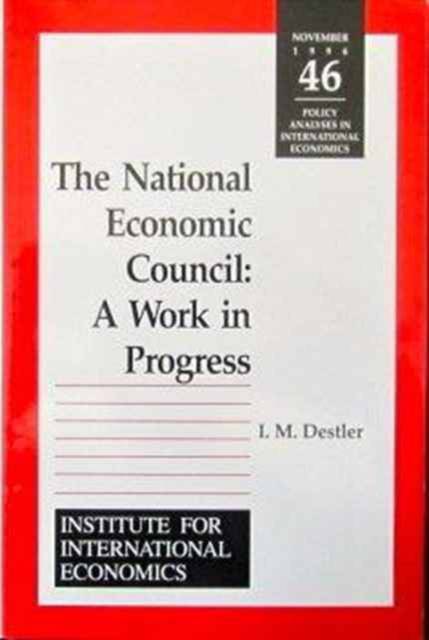
- Afhalen na 1 uur in een winkel met voorraad
- Gratis thuislevering in België vanaf € 30
- Ruim aanbod met 7 miljoen producten
- Afhalen na 1 uur in een winkel met voorraad
- Gratis thuislevering in België vanaf € 30
- Ruim aanbod met 7 miljoen producten
Zoeken
Omschrijving
In January 1993, President Bill Clinton established in his Executive Office the National Economic Council, parallel to the National Security Council born 45 years before. Its official purpose was to "coordinate the economic policymaking process with respect to domestic and international economic issues." The NEC was the President's staff instrument for fulfilling his campaign promise to give top priority to the American economy. Under its first director, Robert E. Rubin, the NEC orchestrated the development of Clinton's comprehensive deficit reduction plan. Then and since, it has sought to coordinate policy on a range of issues, particularly in the area of international trade. Now, as the NEC nears its fourth anniversary, it is appropriate to assess its record. How effectively has it played the role the president assigned it? Has its role been institutionalized, so the NEC can endure as the NSC has endured? Destler reviews its performance across a range of issues, from its two years under Rubin to its role under his successor, Laura Tyson. The analysis concludes with recommendations for strengthening the NEC in 1997 and beyond.
Specificaties
Betrokkenen
- Auteur(s):
- Uitgeverij:
Inhoud
- Aantal bladzijden:
- 93
- Taal:
- Engels
- Reeks:
- Reeksnummer:
- nr. 46
Eigenschappen
- Productcode (EAN):
- 9780881322392
- Verschijningsdatum:
- 1/11/1996
- Uitvoering:
- Paperback
- Formaat:
- Trade paperback (VS)
- Afmetingen:
- 156 mm x 232 mm
- Gewicht:
- 136 g

Alleen bij Standaard Boekhandel
+ 40 punten op je klantenkaart van Standaard Boekhandel
Beoordelingen
We publiceren alleen reviews die voldoen aan de voorwaarden voor reviews. Bekijk onze voorwaarden voor reviews.











